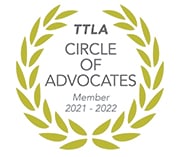Fatal car crashes increase during the transition to Daylight Saving Time in the fall. When clocks go back one hour, there is a sudden decrease in daylight during the evening hours, which can catch drivers off guard.
Reduced visibility in the late afternoon and evening can contribute to more car accidents during this period, as drivers may struggle to adapt to the changing lighting conditions. It is important that drivers exercise extra caution and remain attentive to mitigate the risks associated with this time change.
Sleep deprivation and fatigue
The primary reason behind the surge in fatal car crashes during Daylight Savings Time is the disruption in sleep patterns. Losing an hour of sleep leads to sleep deprivation for many individuals. The resulting fatigue can impair their ability to stay alert on the road, making them more susceptible to accidents.
Changes in circadian rhythm
The human body has a natural internal clock known as the circadian rhythm, which regulates sleep-wake patterns. Adjusting the clocks for Daylight Saving Time can disrupt this rhythm, causing people to feel groggy and disoriented, especially in the days immediately following the change.
Reduced evening daylight
As the days get shorter, it becomes darker earlier in the evening. This abrupt change can lead to decreased visibility for drivers, making it more challenging to navigate the roads safely.
Evening rush hour traffic
The combination of reduced daylight and evening rush hour traffic creates a higher likelihood of car crashes. The increased volume of vehicles on the road during twilight hours, when visibility is at its lowest, can result in more accidents.
Reduced awareness
Many people overlook the need to adjust to Daylight Saving Time. This lack of awareness can lead to a false sense of security, with drivers assuming that the additional hour of sleep is enough to counteract the potential risks. In reality, the transition can lead to an increased sense of complacency, which can contribute to accidents.
Per Cars.com, a driver’s risk of involvement in a fatal wreck rises 6% during the week following Daylight Savings Time. By staying aware of these risks and taking appropriate precautions, individuals can reduce the likelihood of finding themselves involved in a fatal crash during this transitional period.














